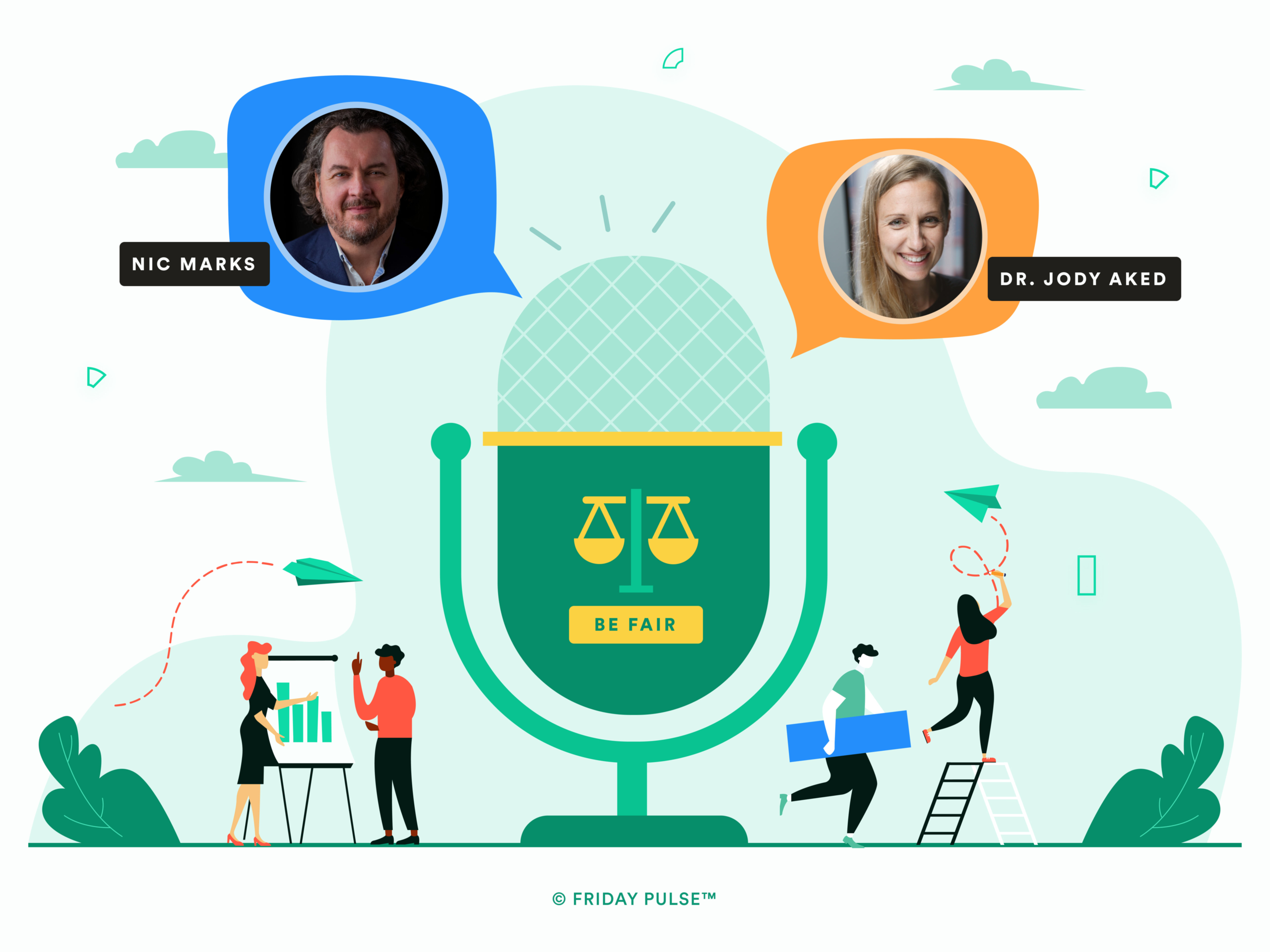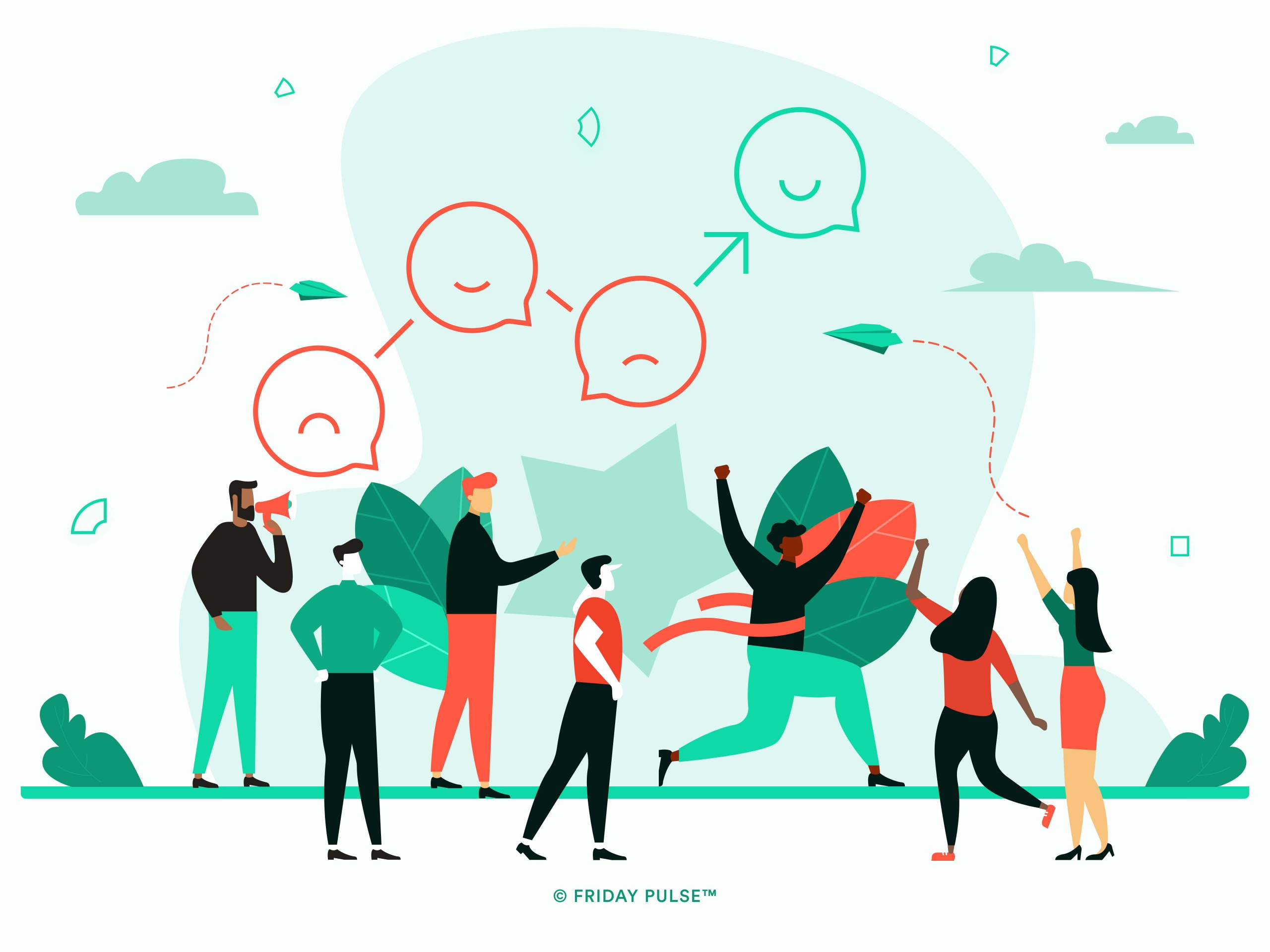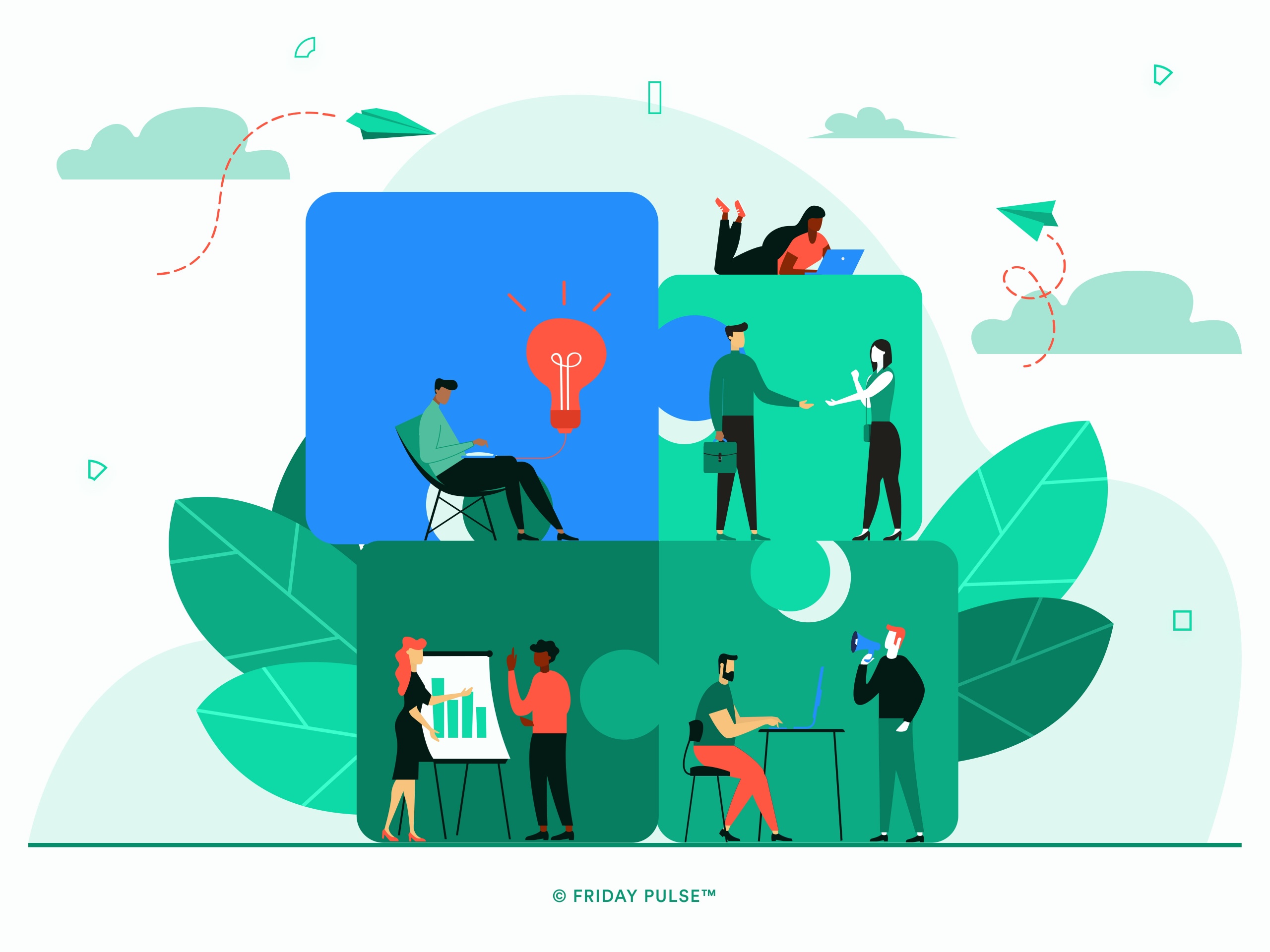Friday Pulse: “There is no wellness without fairness.” Nic, you’ve
shared this quote from Isaac Prillenltensky as one of your
favorites.
Nic:
Absolutely, but I think we can adapt it to “There’s no happiness
without fairness.”
Jody:
Be Fair is being renegotiated now in the workplace from lots of
different angles. It’s in the discussions about hybrid working and what
that means for team dynamics. It’s also in Black Lives Matter and those
conversations around whiteness and white privilege. We are in a
fascinating moment of reckoning over equality and fairness in society.
Nic:
Inclusivity is also becoming ever more prevalent because it’s not just
for the individual. People are looking at how it can inspire innovation
and creativity within the team — diversity in its truest sense. If you
get different perspectives and insights, you ultimately design better
products and services.
Why is Be Fair so foundational to happiness?
Jody:
I often think about it with children. If they don’t have that
fundamental sense of safety and that everything’s okay, then it’s hard
for them to explore and put themselves in positions where they can have
positive, life-enhancing experiences. It’s no different with work.
But in the workplace, if you don’t have the basics in check such as
working hours, fair pay or ethics, quite quickly, things run away with
you. Fairness is not the kind of stuff that’s going to make you come out
singing and dancing. But it’s that kind of contentedness, everything in
its right place. Be Fair is a sense of, “This all feels like I’m
respected. I respect other people. I’m going to be treated well here.”
Nic:
Be Fair is not flashy in the same way as the other Five Ways. In
some respect, it’s a deficit need. When it’s not met, you don’t get into
a space of dynamic happiness or positivity. It doesn’t have much of an
immediate upside. So, things like fair pay, work-life balance — if
they’re wrong — can be a big problem. But when they’re right, they act
as the foundation for everything else.
There’s quite a lot of reciprocity in Be Fair. It’s about feeling
respected and respecting others. It’s not a one-way street. What
appreciation am I showing others as well? When we’re coaching team
leaders, and we find that people are feeling underappreciated, then we
often add, “What have you done to appreciate yourself this week?”. This
is important to recognize.
What are some good ways to appreciate yourself?
Nic:
Each week, we ask teams to share their successes — this is not just to
inspire people but to recognize effort. Writing down a success makes you
stop and take inventory of the good things you and your team have
achieved.
You can also appreciate yourself by respecting that you have a life
outside of work and that you also have work to do.
Work-life balance and boundaries is a topic that’s often discussed,
especially during the pandemic. What kind of advice do you have for
people in drawing their boundaries?
Jody:
We coach a lot of organizations that have a number of highly engaged,
motivated people who are struggling with a work-life balance. So, we
like to ask, “What have you done to draw the boundaries as an
individual?”
Nic:
Burnout comes from overworking, and it often comes from highly engaged
people who go the extra mile. When burnout strikes, what can happen is
you’ll suddenly lose an employee for three months because they go off
sick or, worse, eventually leave. So, you have flight risk and you
have a health risk.
Yet, before burnout people’s productivity disappears, even though
they’re at work. They might be working long hours, but they’re not
necessarily delivering. This falls on the enlightened employer to make
sure all employees have a good work-life balance. It really pays to have
your people work less!
What do you see as some of the biggest problems with fairness in
today’s workplaces?
Nic:
Many companies adopt a one-size-fits-all policy. That’s wrong. One
size doesn’t fit all. Personalization can be an opportunity for more
fairness. A lot of fairness policies are made without any consideration
of power symmetries. Power is inherent in any relationship. And you need
to understand where the power asymmetries may surface from a hybrid
model of working and talk about them. I often think about how often we
design for introverts and ambiverts as well as extroverts in the
workplace. The structure probably looks quite different. We tend to
design for extroverts.
In hybrid working, those who are naturally outgoing may find it easier
to both make and sustain connections with people on screen, as well as
face-to-face. How do we not unintentionally edge people out in the way
that we hold meetings — especially when we host meetings and we’ve got
some people in the office and some people out?
This is why we track data points, and we give numbers to concepts or
experiences that can then be talked around. So, whether it’s
appreciation or work-life balance, we give it a score — the question
then becomes, what does that look like? What does good look like? From
there, you can then start unpacking it to get everyone on the same page.
Then, you can look at how this applies on an individual level. Who is
having a hard time? Who isn’t?
Is there an overlap between Be Fair and Connect? It seems like you
can’t have fairness without connection.
Jody:
I think it’s hard to be fair without connecting, yes. Otherwise, you’re
making assumptions. You’re having many conversations in your head about
what that person’s experience is or how they feel. And we layer a lot of
unconscious bias onto that.
The truth is that we make fundamental attribution errors all the time.
We think that people are just handed success. But if I know you and I
understand your journey, your trials and tribulations, your little
successes and wins – if I know all that, then I can’t help but be happy
for you.
Through connecting, we humanize one another, and that makes it easier to
be fair.
A fair workplace creates psychological safety. How does a fair
workplace encourage people to reach their potential?
Jody:
There’s an interesting piece of research that looked at creativity in
teams and collective intelligence. It asked what made a team
collectively intelligent. It was about being able to read relational
cues and how emotional intelligence underpinned collective intelligence.
It also found that collective intelligence correlated with how many
women and men were on a team.
They explored this topic and found that you need quite a lot of women on
a team to build up emotional intelligence because this is something
women are naturally strong at. What stood out was that if you wanted
full participation from women, you need a team with more women than men
(above 50%). The team composition usually doesn’t stop men from
participating, but it has an impact on women.
What can teams do to create a fairer environment?
Nic:
*In some ways, it’s quite simple. I think it’s listening to people and
approaching things with a fairness lens. I like the idea of “Thinking
before you think*.” It’s a reflection before you do something. You have
to ask yourself the question, “Is this procedure fair? Are there any
biases in it?” If you keep asking yourself that question, by taking
stock and reflecting, you’ll be able to remove 70-80% of unfairness.**
In a more direct way, it starts with getting good data that you can act
on. This is especially true with things like the gender pay gap. You may
not think you have a problem, but data can show where inequalities exist
in your company.
Jody:
There are a lot of things that are in the teams in control. Hiring for
diversity is one thing. Making sure airtime is shared evenly in team
meetings is another.
But Nic is right in that, in some ways, it’s really simple. One of my
favorite quotes is from Maya Angelou. “People will forget what you
said, people will forget what you did, but people will never forget how
you made them feel.”
And that’s it, really. At the end of the day, are we treating people
humanely?



